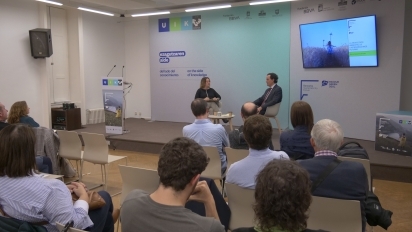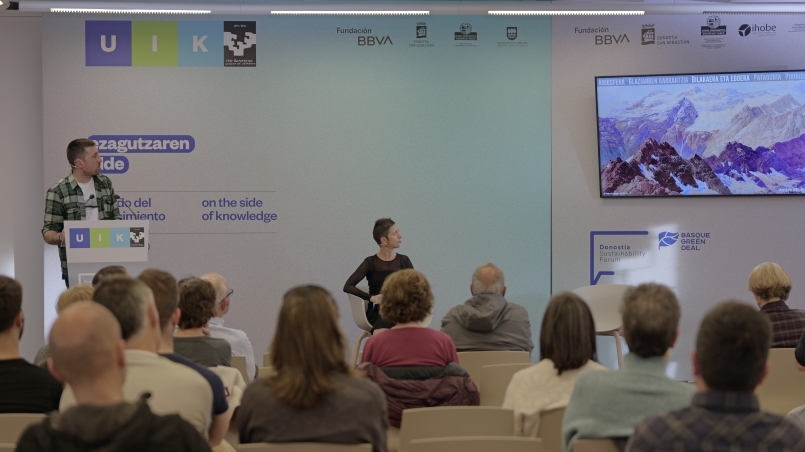Manuel Castañón: 'The time has come for environmental law to take an intergenerational approach in order to guarantee the survival of the human being'
'The decisions adopted by those of us alive today may affect the life and rights of the people yet to be born in the coming years, decades or even centuries," explained Manuel Castañón del Valle, a lawyer specialised in Environmental Law during his talk on "Environmental Protection of Future Generations. A Necessary Basis for International Law", given at the Donostia Sustainability Forum, in conjunction with the Basque-Navarre Institute of Architects (COAVN).

'The decisions adopted by those of us alive today may affect the life and rights of the people yet to be born in the coming years, decades or even centuries," explained Manuel Castañón del Valle, a lawyer specialised in Environmental Law during his talk on "Environmental Protection of Future Generations. A Necessary Basis for International Law", given at the Donostia Sustainability Forum, in conjunction with the Basque-Navarre Institute of Architects (COAVN).
Manuel Castañón advocated for a change of paradigm in environmental law that incorporates the protection of future generations. In his opinion, 'mature environmental law needs to take a qualitative leap and to answer a series of questions that we are currently overlooking. One of them is the challenge of inserting the intergenerationally principle into new environmental protection regulations. The time has come to for environmental law to take an intergenerational approach, as a measure with one purpose: the survival of the human being'.
'I have identified, at least, 34 international agreements and, at least, 14 constitutions around the world, whose preambles, articles, expressly already recognise future generations', added Manuel Castañón.
Furthermore, he stressed the importance of granting legal standing to the generations yet to come; that would provide environmental law with effective legal tools to defend the rights of the people who will live in the future. Accordingly, and given the 'resistance' to be found in the world of law, he explained that legal standing has already been given to abstract entities such as nature or the Mar Menor in the Spanish case.
The figure of the Future Generations Commissioner, which has already been successfully implemented in places such as Wales or Malta, is a fundamental tool to carry out the change of paradigm in environmental law advocated by Manuel Castañón. 'The role of that figure is to ensure the interests of future generations, reviewing projects and legislation to ensure that their rights are not undermined. 'Those commissioners do not only receive allegations, but when they see a case of environmental impairment, they denounce that breach on behalf of future generations', he added.
Furthermore, Manuel Castañón explained the pressing need to act with regard to realities such as the loss of biodiversity, which shows the importance of protecting the genetic resources, and climate change itself, whose impacts are going to be ever more intense.
Given this challenge, Castañón raised the need to generate a political and social debate to foster this extension of environmental law. Society, he explained, must begin to 'become familiar with the idea of new ambitious projects, of new legislation, of new ways of meeting the new challenges that lie ahead'. In his opinion, that change involves intergenerational environmental protection, which recognises the rights of future generations and which is underpinned by new institutions to defend them.

